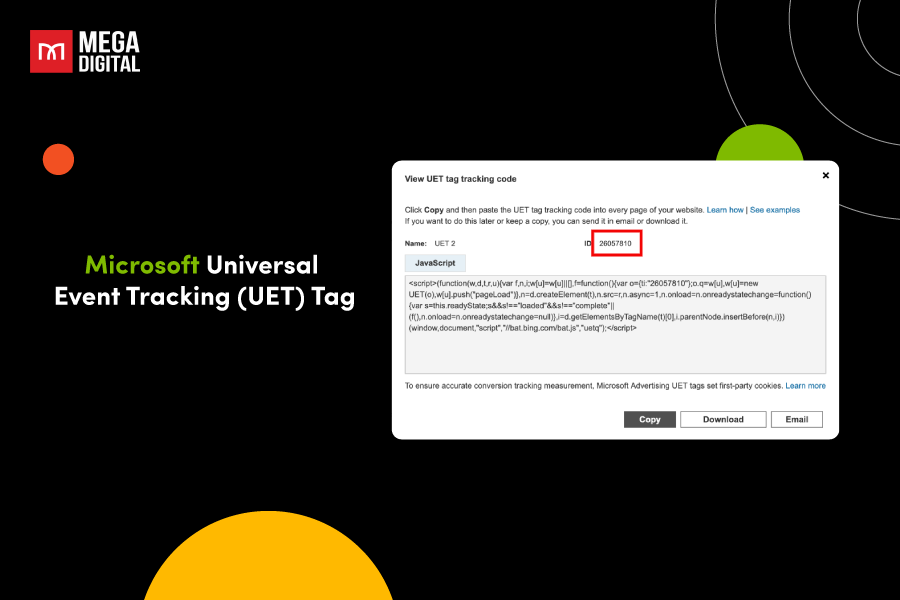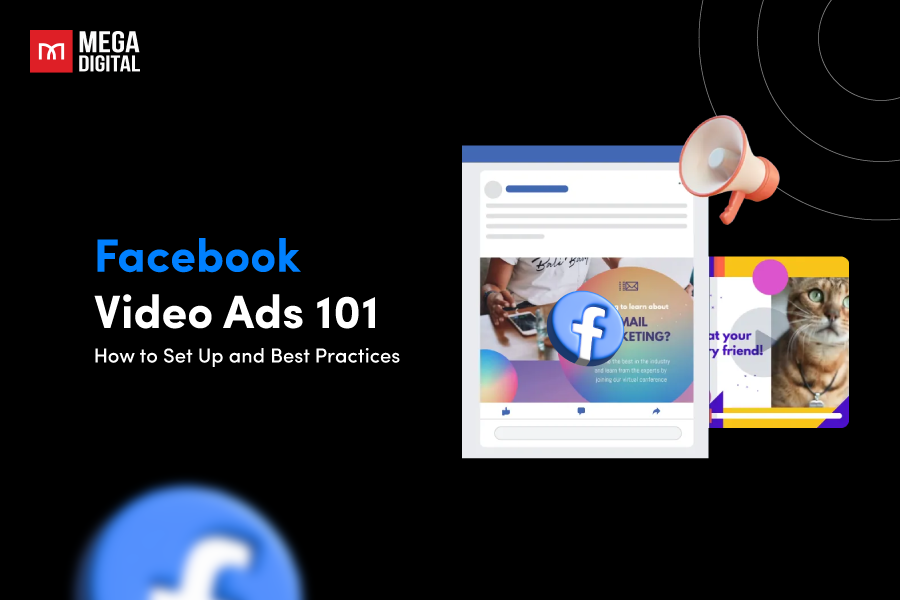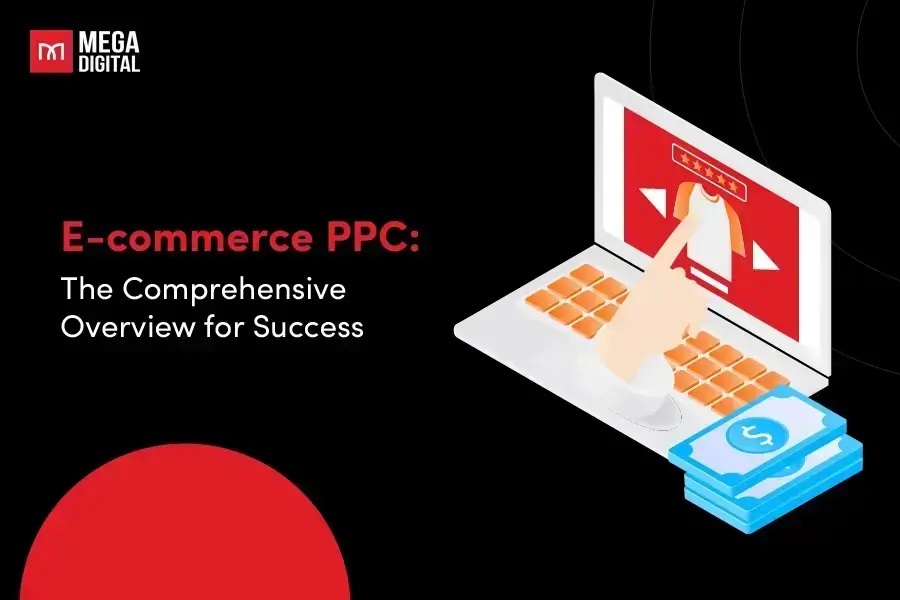Google Ads is introducing a significant change to its platform that will impact advertisers worldwide. Starting in June 2024, Google Ads will automatically pause low-activity keywords. This change is designed to help advertisers simplify their accounts and focus on keywords that drive results.
Google’s Email To Advertisers
Google is sending out emails to advertisers to notify them that it will soon begin automatically pausing low-activity keywords.
The email explains that if positive keywords in search ad campaigns have not generated impressions for over a year, they will be considered low-activity.
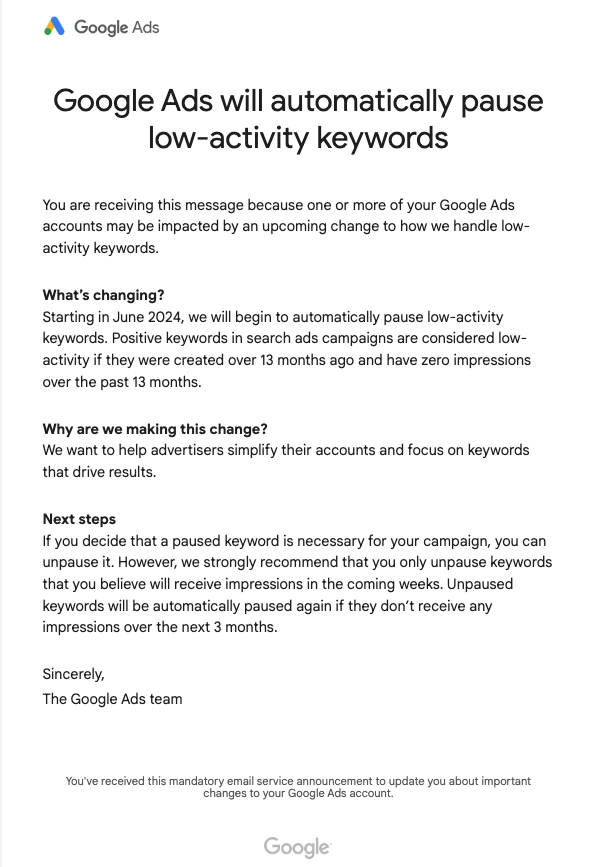
Understanding The Change
Low-activity keywords are defined by Google as those that were created over 13 months ago and have registered zero impressions during that time. The aim of this change is to streamline workflows and simplify ad accounts.
This move is similar to Google Ads’ previous action of automatically pausing inactive ad groups, but this new change is at the keyword level, not the ad group level.
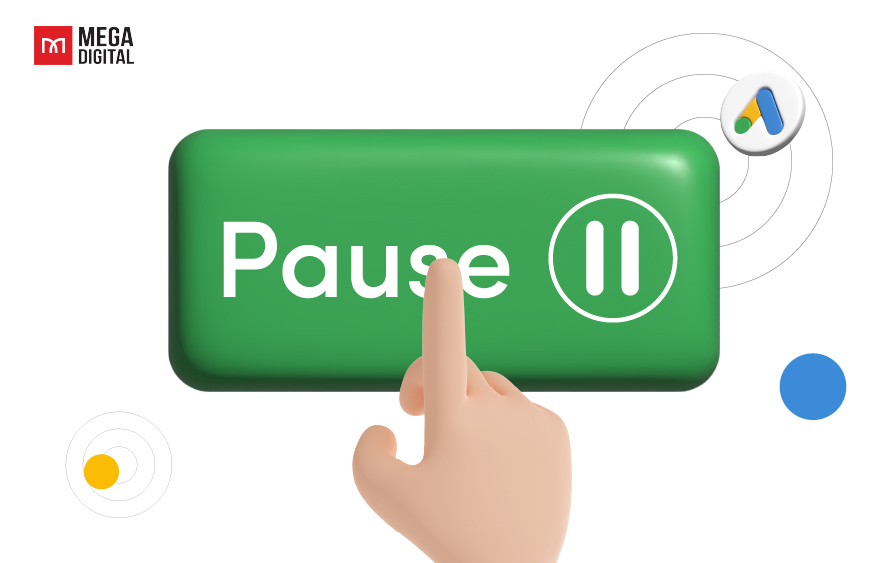
Implications For Advertisers
This change means that campaigns with keywords that were created over 13 months ago and have zero impressions over the past 13 months will be paused. Advertisers will need to review and refine their keyword strategies. With this new policy of Google Ads to automatically suspend low-activity keywords, advertisers must be more active in spotting and prioritizing high-performing ones.
Advertisers can still unpause these keywords if they believe they are still valuable for their campaigns. However, Google strongly recommends only unpausing keywords that are expected to receive impressions in the coming weeks. If unpaused keywords fail to generate any impressions within the next 3 months, they will be automatically suspended again.
Final Thoughts
By automatically pausing low-activity keywords, Google aims to streamline advertiser accounts and encourage a more focused approach towards high-performing keywords. However, some advertisers may find value in maintaining low-activity keywords for some reasons, such as capturing long-tail searches or aligning with specific marketing objectives.
This update serves as a reminder for advertisers to continually review and update their keyword strategies. It’s an opportunity to reevaluate keyword strategies and consider new, relevant keywords with potential.







